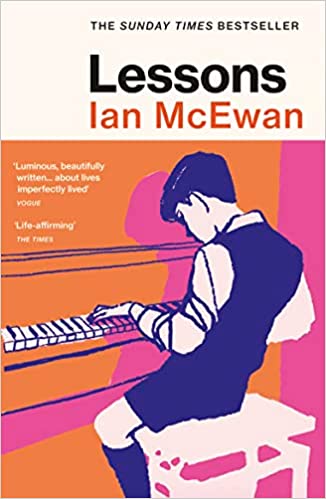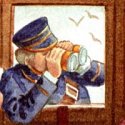Inside these 496 pages, there is a great 300 page novel trying to get out. Ironically, Ian McEwan (IM) himself said in 2014 ‘very few long novels earn their length’ and went on to say ‘my fingers are always itching for a blue pencil’. There’s no doubt that IM is still writing phenomenally well with great characterisation and very skilful prose. But his editor has let both him and his readership down by not insisting on cutting back on the rambling narrative so as to help us focus more on the crucial themes.

This novel is the story of Roland Baines, born post WW2, and his journey through life right up until post-lockdown. There’s a galaxy of characters, his family of siblings, his teacher, his wife, Alissa. Roland is talented but perceives that he has been thrown off a career path in his teens. He has a joyless, grinding existence with little satisfaction and only minor successes as a pianist, tennis coach and poet.
We first meet him as a lone parent, struggling to raise his son, Lawrence. He is exhausted and frustrated. Many of the people around him are frustrated or are on the periphery of events and never quite there. His mother-in-law, Jane, never submits her article to Cyril Connolly on the White Rose movement during the war. His father-in-law, Heinrich knew a few of the White Rose people but was never part of it. Roland’s wife, Alissa, completes a few unpublished novels but (spoiler-free comment) things do turn out differently for her.
IM is writing in Chekovian mode about people whose lives are disappointing and constantly close to failure. But Chekov was writing short stories. 500 pages of failure makes it heavy going even with IM’s superb writing. However, there is a fascination with Roland’s position and I kept with this novel as I wanted to discover how his life turned out. And there are several excellent twists and turns of the ‘I didn’t see that coming!’ variety.
Throughout the book, there is a constant reference to the current affairs of the day. However, few, apart from the Berlin Wall, have novelistic relevance and often they seem like the jottings of a sixth form student who is making notes for an essay on ‘Key Events: 1950 to 2020’. This is where an editor might say ‘Either make a bigger focus or cut them all together’.
There’s no doubt that it is difficult to write about under-achievement. Perhaps we want to read about strong central characters overcoming setbacks to achieve goals. Perhaps IM set out to write an untypical novel about the familiar stories of talent going unfulfilled. The sweep and scale of the novel is very impressive. I wish that an editor had tactfully used the blue pencil more freely.
